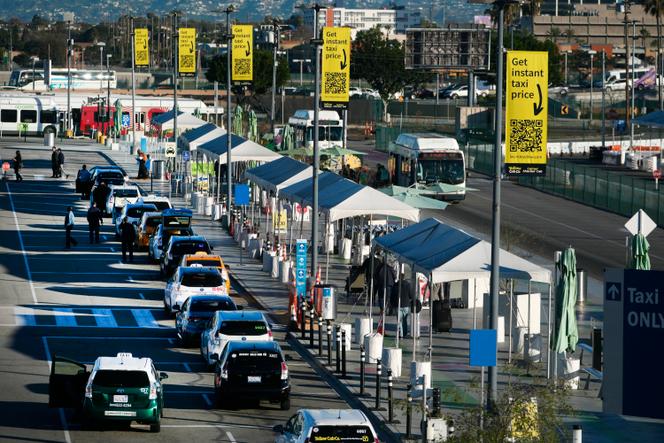

LETTER FROM NEW YORK

To each his own: In October, we decided to attend a concert by Depeche Mode, the new wave icons of the 1980s. Not at Madison Square Garden, but at the cheaper Barclays Center in Brooklyn. Carefully, on the Ticketmaster app, a must, we chose three tickets, for an already hefty total of $462. Finally, it was time to pay, and suddenly, a so-called service charge of $124.74 appeared. More than a 25% increase for the evening, without any prior notice.
This is a case of "junk fees," those unwanted and hidden charges that systematically inflate the bill. Since the beginning of his mandate, President Joe Biden has promised to tackle them. The task is a difficult one, as these fees are everywhere.
With airlines, that's well-known. With hotels, where the Islander Resort in Florida adds $44 per night in extra charges at the time of booking; with banks and ATMs, which charge $2.90 for each withdrawal – sometimes reimbursed by the bank. As for taxis, don't be content with the figure at the top of the meter: for a round trip from La Guardia airport to Manhattan, including airport pick-up, bridge toll to Manhattan, taxes, the city toll, and the inevitable 20% tip that has become the norm for all services, the bill has risen from $34.50 to $64.81.
"Junk fees take real money out of the pockets of average Americans," Biden said Monday, November 27. "They can add up to hundreds of dollars, weighing down family budgets and making it harder for families to pay their bills." Consumers, said Biden, "feel like they’re being played for suckers. Which they are." In October, he had clarified that "these junk fees may not matter to the wealthy, but they sure matter to working folks in homes like the one I grew up in." In October, the Federal Trade Commission unveiled a proposed rule that, according to the Biden administration, would prohibit companies from charging hidden or deceptive fees and require them to post the full price upfront, if only to ensure transparent competition.
Banks are also in the crosshairs. The Consumer Financial Protection Bureau plans to prohibit major banks from charging for basic services such as account balance statements or repayment of installments. There is also a proposal to reduce credit card late payment penalties to $8 – in the US, it is the customer who decides whether or not to pay their credit card overdraft or they face accruing interest otherwise. At present, interest can be as high as $41.
Americans pay $12 billion a year in late fees on their credit cards, a figure that should fall to around $3 billion with the adoption of the new rule. By 2021, the federal government had tackled overdraft fees, saving Americans $2 billion a year.
You have 35% of this article left to read. The rest is for subscribers only.
